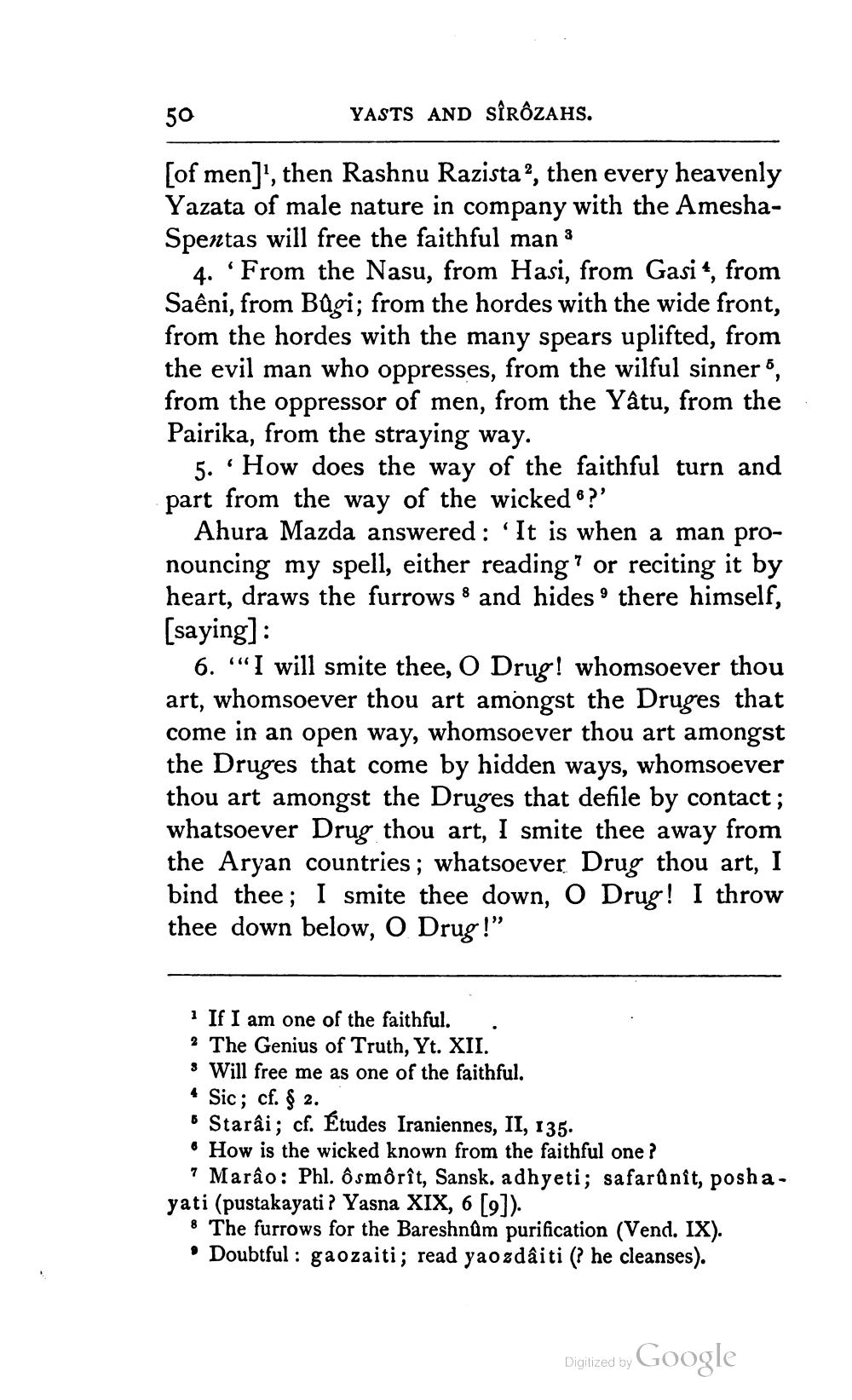________________
50
YASTS AND SÎRÔZAHS.
[of men)', then Rashnu Razista?, then every heavenly Yazata of male nature in company with the AmeshaSpentas will free the faithful man 3
4. From the Nasu, from Hasi, from Gasi“, from Saêni, from Bugi; from the hordes with the wide front, from the hordes with the many spears uplifted, from the evil man who oppresses, from the wilful sinner 5, from the oppressor of men, from the Yâtu, from the Pairika, from the straying way.
5. How does the way of the faithful turn and part from the way of the wicked @ ?'
Ahura Mazda answered: 'It is when a man pronouncing my spell, either reading? or reciting it by heart, draws the furrows 8 and hides' there himself, [saying]:
6. “I will smite thee, O Drug! whomsoever thou art, whomsoever thou art amongst the Druges that come in an open way, whomsoever thou art amongst the Druges that come by hidden ways, whomsoever thou art amongst the Druges that defile by contact; whatsoever Drug thou art, I smite thee away from the Aryan countries; whatsoever. Drug thou art, I bind thee; I smite thee down, O Drug! I throw thee down below, O Drug!"
If I am one of the faithful.
The Genius of Truth, Yt. XII. : Will free me as one of the faithful. • Sic; cf. § 2. 6 Starâi; cf. Études Iraniennes, II, 135. • How is the wicked known from the faithful one ?
? Marâo: Phl. ôsmôrît, Sansk. adhyeti; safarûnît, posha. yati (pustakayati ? Yasna XIX, 6 [9]).
The furrows for the Bareshnům purification (Vend. IX). • Doubtful : gaozaiti; read yaozdâiti (? he cleanses).
Digitized by Google




